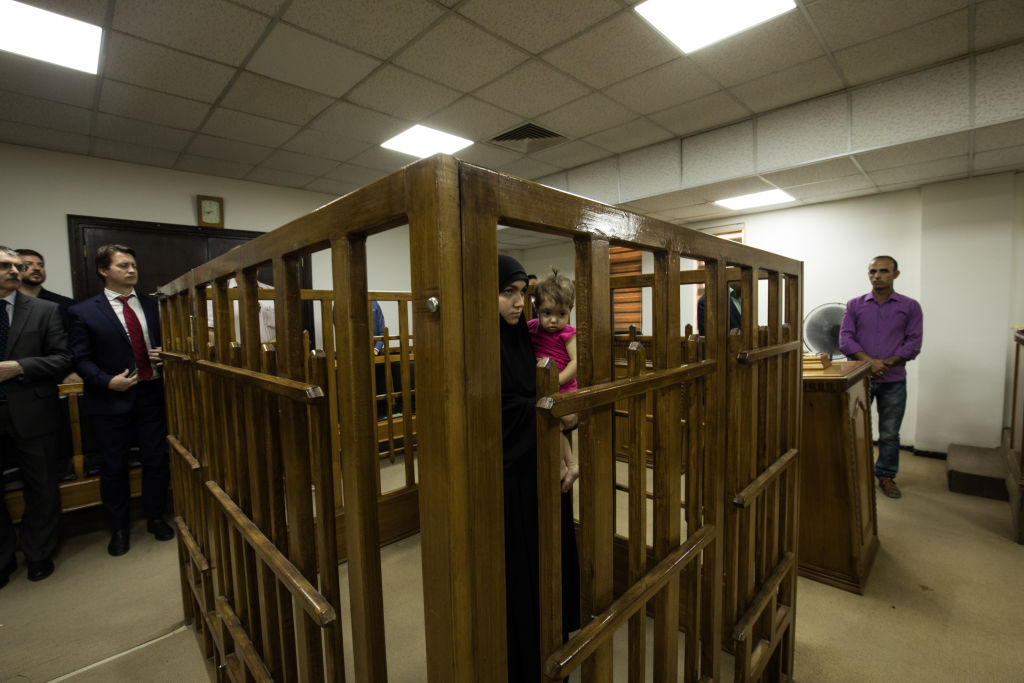BAGHDAD—The courtroom was silent—all eyes were on a woman, a Turkish schoolteacher in her early twenties, who stood in a wooden cage in the center of the room. Her husband, killed in an airstrike, was an accused member of the Islamic State. She was one of the hundreds of foreign women who crossed illegally into Iraq and Syria and would become known as the “ISIS brides.” And today was her moment of reckoning.
It wasn’t clear, however, whether she understood that. She had only a court-appointed translator and public defender, neither of whom offered a proper translation or defense. When the judge asked if she pleaded guilty or innocent to illegally crossing into Iraq—at no point did they ask if she joined or supported the Islamic State—she seemed unsure what to say.
“Guilty,” she answered, looking around in confusion, her little boy dressed in blue wailing in the cage with her. With that admission, she was sentenced to death by hanging. Her trial would last only a few minutes.
Over the past three years, U.S.-backed Iraqi forces have captured, killed, and detained thousands of Iraqis and foreigners with alleged Islamic State ties, ultimately driving the militant group and its predominantly male ranks from power in Mosul, Iraq’s second-largest city, in July 2017. But left behind are the thousands of women married to or associated with the fighters, their children, and a burning ethical question: What should be done with them? We know historically that women often lose agency during wartime, particularly in patriarchal societies where they already lack freedom of choice and movement. Are these women victims themselves, forced into life under militant rule, or perpetrators of and partners in violence who should be held accountable for violence that tore apart Iraq?
Read the full article here.



